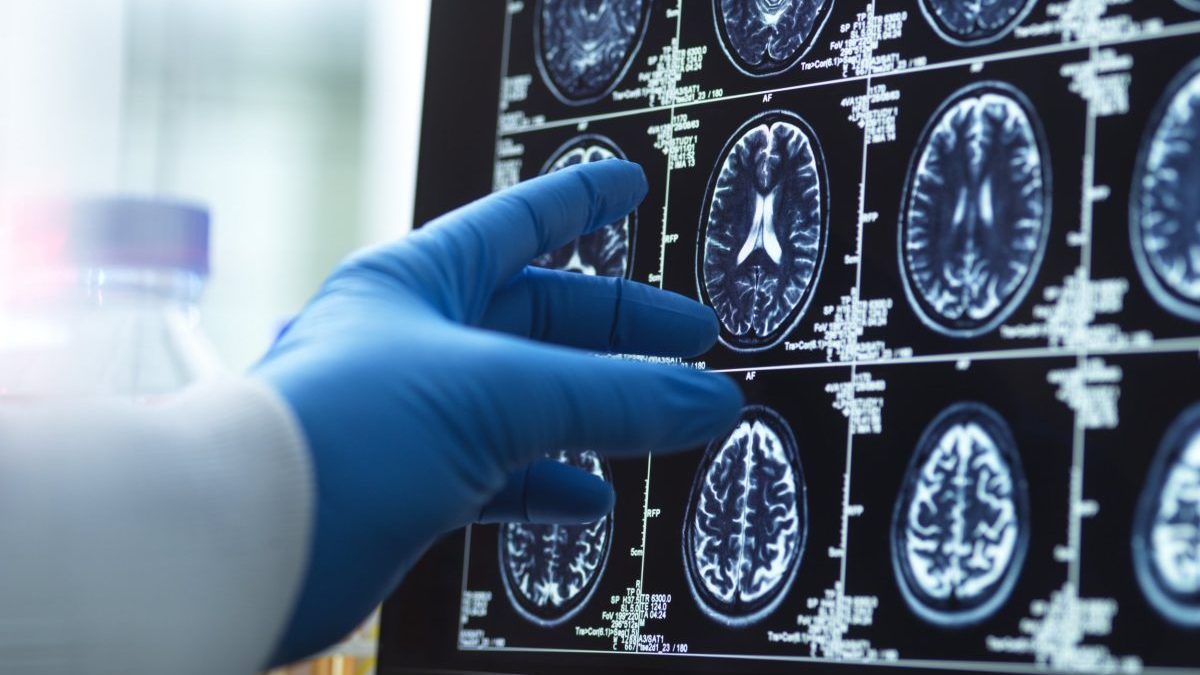A new blood test for Alzheimer’s proteins is being hailed by some as a game changer, but it could have hidden downsides
Blood tests that show signs of Alzheimer’s disease have started to be used in some NHS clinics and are now being tested for wider use in a large trial.
Some doctors say their arrival will revolutionise treatment for Alzheimer’s, as it is so hard to diagnose. But others warn the tests will lead to some people being told they are on the path to Alzheimer’s several years before symptoms arrive, if at all.
“If used appropriately it could be a good thing. But it could do an awful lot more harm than good,” said Professor Rob Howard, a dementia expert at University College London, who is one of those investigating the test.
New FeatureIn ShortQuick Stories. Same trusted journalism.
Diagnosis of dementia is currently difficult, because there are several different forms of the disease, and mild worsening of memory is very common as people get older.
If memory loss reaches a certain level but is not yet interfering with activities, this may be classed as mild cognitive impairment. It may continue progressing over the next few years and become dementia, it may stay the same, or it may go away.
Until now, only brain scans or a painful spinal fluid test could shed more light, by showing if the brain has signs of Alzheimer’s disease or vascular dementia, caused by strokes. But these are hard to access and people may wait years for a diagnosis.
 Some people think puzzles can help keep their mind sharp (Photo: Halfpoint Images/Getty)
Some people think puzzles can help keep their mind sharp (Photo: Halfpoint Images/Getty)
The new blood test reveals if the Alzheimer’s proteins are building up in the brain, and – put together with results from memory tests and doctors’ appraisals – can point more strongly to an Alzheimer’s diagnosis.
That means people can take medicines that slightly ease the memory problems, as well as letting families plan for the future, said Sheona Scales, head of research at Alzheimer’s Research UK.
“Getting an early and accurate diagnosis gives people the answers they need to unlock support and care,” said Scales, who called the blood test a game changer.
Downsides of new test
The downsides from the blood test may be less obvious but doctors are already worrying about them.
The chief problem is that in Alzheimer’s, the proteins that seem to cause brain cell death, and hence memory loss, build up slowly over decades. “People have the pathology in their brain sometimes 20 years before they get any symptoms of dementia,” said Professor Howard.
The proteins are relatively common in the very old, but those are the very people who may not live long enough to experience the emergence of the full-blown disease. “Someone who’s 85 may have a worry about their memory, and may test positive, but the likelihood is they’re actually going to die before they reach 105, when their dementia would appear,” said Professor Howard.
In that case, all the distress and worry caused by the positive test could be for nothing.
Even for people taking the test in their sixties and seventies, it’s still unclear what a positive test result today means for how likely they are to deteriorate over the next few years.
Needless worry
These are the risks when the test is used as intended, for those where cognitive testing at a specialist clinic suggests they have either mild cognitive impairment or some kind of dementia.
But there is even more potential for harm if people take the test who haven’t been diagnosed with either of those conditions. That’s because any memory problems are probably much further in their future. So there is even more potential for needless worry and distress.
Neurologists are already concerned that wider public awareness of dementia is contributing to a growing number of people who convince themselves they have Alzheimer’s but really just have ordinary memory lapses linked with ageing. Sometimes the stress can worsen the memory problems.
The blood test is already on sale to the public in the US, and although firms generally advise customers the test should be used under doctor’s guidance, this can’t be enforced.
It is likely the UK public will soon be able to access it too, said Professor Howard. “We would strongly advise against people going for testing unless they have symptoms,” said Professor Jonathan Schott, neurologist at the National Hospital for Neurology and Neurosurgery who is running the trial. “This has been roundly discouraged and condemned by all experts.”
Blood test for Alzheimer’s could be available on the NHS
By Paul Gallagher, Health Correspondent
A game-changing blood test for Alzheimer’s disease could be available on the NHS in just over three years as a major trial involving 1,100 British patients begins.
People with suspected dementia are being recruited via memory clinics across the UK to check how well the test works in the NHS. Experts hope to have answers by 2028.
A team led by University College London (UCL) is investigating whether the test, which measures the protein p-tau217, can improve the early and accurate diagnosis of Alzheimer’s disease. The test has already been shown to be effective in looking for the protein but researchers want to know whether giving it to patients near the start of an assessment for memory and thinking problems helps guide diagnosis and treatment.
Alzheimer’s disease is the most common cause of dementia and linked to the build-up of two key proteins in the brain called amyloid and tau. P-tau217 is regarded as a promising biomarker which shows both amyloid and tau are present in the brain.
Experts believe blood tests such as plasma p-tau217 can detect these proteins as accurately as current – but more invasive – methods such as PET scans and lumbar punctures. Currently only about 2 per cent of people diagnosed with Alzheimer’s have access to one of these gold-standard diagnostic tests.
If shown to work in NHS practice, blood tests could be used as part of a wider assessment to confirm the diagnosis of Alzheimer’s disease for people who already have memory or thinking problems.
Researchers have spent many years trying to perfect a blood test for Alzheimer’s with “radical” developments over the last five years thanks to modern technology. Multiple instruments on the market can now measure blood proteins at unprecedented low concentrations, the team behind the trial said.
